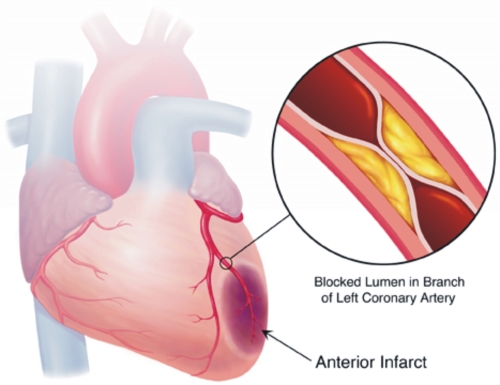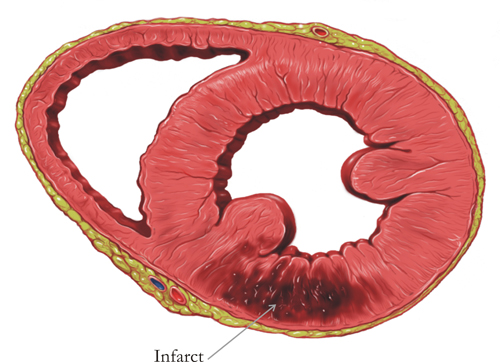Myocardial ischemia occurs when blood flow to heart muscle is reduced by partial/complete blockage in an artery supplying blood to your heart (coronary artery). Decrease in blood flow reduces oxygen supply to heart, which damage the heart muscles and reduces hearts ability to pump efficiently.
A sudden, severe blockage of coronary artery leads to ‘Heart Attack’.
What are the symptoms of Myocardial ischemia?
- Chest pain ( left side of body)
- Neck/jaw pain
- Shoulder pain
- Shortness of breath
- Nausea and vomiting
Some people having myocardial ischemia don’t experience any of the above symptoms, which is termed as silent ischemia.
Which conditions cause Myocardial ischemia?
- Coronary artery disease (CAD/atherosclerosis) – It occurs when plaques made of cholesterol and other cellular waste products build on coronary arteries and decrease the blood flow. This is the most common cause of myocardial ischemia.
- Blood clot – The plaques that develop in atherosclerosis can rupture and cause blood clot, which may lead to sudden heart attack.
- Coronary artery spasm – it is temporary tightening of the artery walls, which narrows and decrease/prevent blood flow to heart muscles.
- Other Severe illness – It occurs when metabolic demands increase and when blood pressure is low due to infection, bleeding and other severe illness.
Do I have the risk of getting Myocardial ischemia?
There are certain factors that may increase your risk of getting Myocardial ischemia. They are-
- Smoking
- Diabetes
- High Blood Pressure
- High blood cholesterol or triglyceride level
- Lack of physical activity
- Obesity
- Family history
What are the complications, if I don’t take treatment on time?
Heart attack: If the coronary artery is blocked completely, the sudden supply of blood and oxygen will lead to heart attack that destroys the part of heart muscle causing serious and fatal damage to heart.
Heart muscle injury: It can reduce the blood pumping capability of heart and over the period of time may result in ‘Heart failure’.
Irregular heart rhythm: When heart does not receive adequate blood supply, the electrical impulses that coordinate the heart beats may malfunction. This may cause heart to beat too fast or too slow or irregularly.
What is the conventional treatment for Myocardial ischemia?
Treatment of Myocardial ischemia mainly focuses on improving blood flow to affected heart muscles. Depending on the severity, your condition will be treated by medication, surgery or both.


